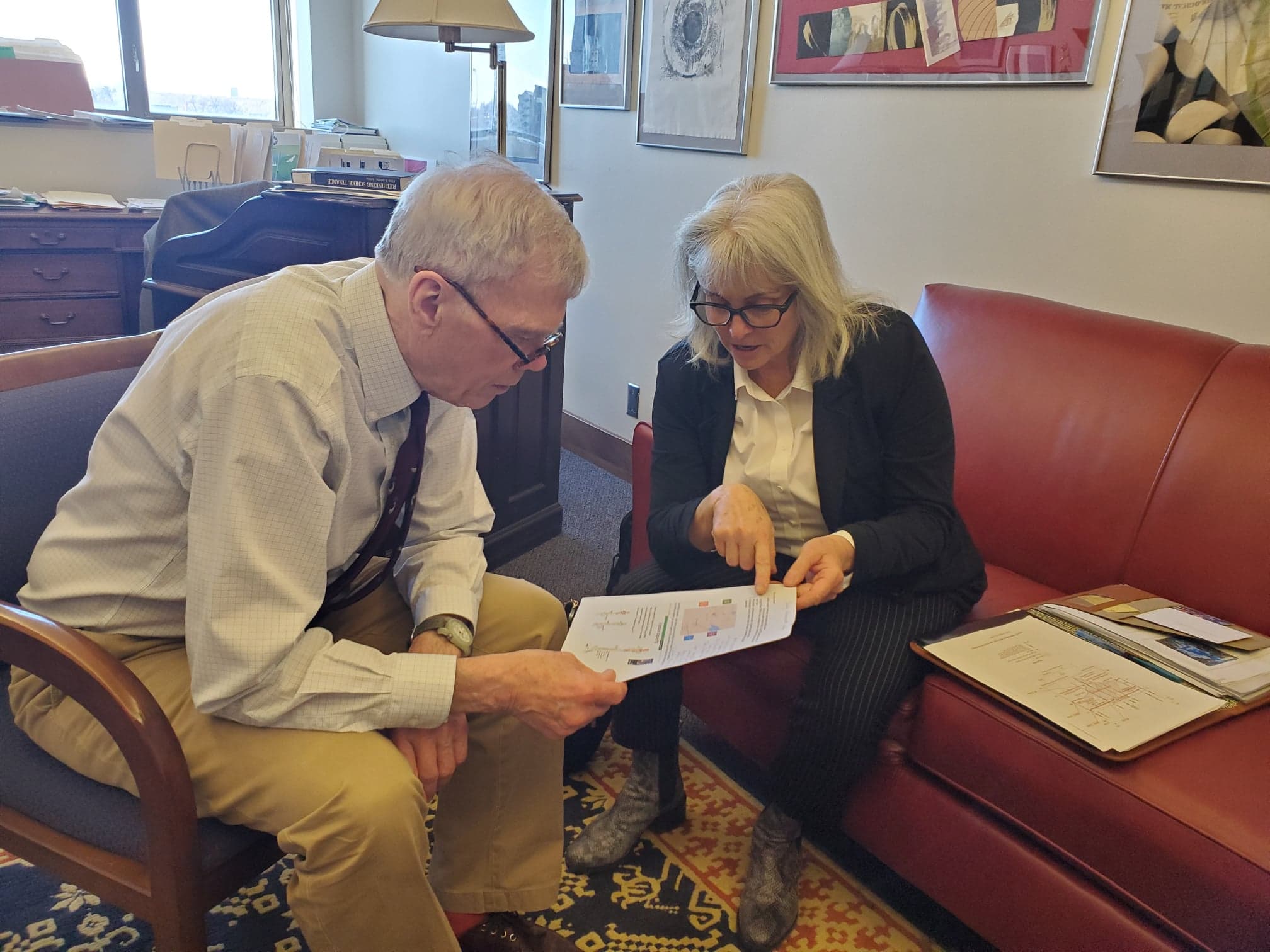
The 2020 Legislative Session convened on February 11 and our Legislative Policy Team (Dr. Carrie Jennings and Jen Kader) got a quick start engaging on several key issues:
- strengthening groundwater protection
- securing enhanced outcomes from the Legacy Amendment’s Clean Water Fund investments
- addressing the impact of climate change on communities, water, and water infrastructure
Judy Erickson and Joe Birkholz of Conservation Strategies serve us at the Capitol on a daily basis. They bring three decades of experience and a wealth of strategic connections on both sides of the aisle, with state agency leaders, and within the lobbyist community. They set up visits with key committee members for both Jen and Carrie to provide background and answer questions on our priorities before any hearings, and coordinated with committee leaders for Carrie to testify on several bills.
On March 15, legislative leaders announced they were suspending all hearings, committee work, and floor sessions until April 14 in response to COVID-19 protocols. All viable legislation is now grouped into three buckets:
1. Items related to COVID19
2. Mission-critical legislation (like a bonding bill, for example)
3. Legislation that has bi-partisan agreement
Like many things we’ve seen change in recent weeks, the rest of the Session is going to look vastly different from usual. We are still working with legislators and Conservation Strategies in hopes that the bills we are interested in will meet the viable test when the legislature returns April 14. Our priorities are:
- Conservation Reserve Enhancement Program (CREP) funding: CREP funds restoration of natural vegetation and other important soil and water conservation practices across Minnesota’s agricultural watersheds. We support Governor Walz’s inclusion of $16.5 million for CREP in his 2020 capital investment appropriation requests. This appropriation has a federal 2:1 match.
- HF 3595 (Torkelson)/SF 3864 (Weber): This bill would require the Board of Water and Soil Resources to establish a water storage program to help local units of government in the Minnesota River Basin control water volume and flow rates to protect infrastructure and improve water quality. Retaining water temporarily and reducing flood flow in the rivers reduces sediment and nutrient loss. This has the support of various stakeholders, agencies, and landowners.
- HF 4433 (Wagenius): This legislation safeguards drinking water for future generations. It is a response to the private company that sought to export thousands of gallons of groundwater from Dakota County to western states. HF 4433 would require the Department of Natural Resources (DNR) to hold a public meeting prior to issuing a permit for more than 216,000 gallons of groundwater a day and also determine if that use is sustainable.
We base our policy efforts on a scientific foundation, a systems-based approach, and the best, evidence-based tools for solving freshwater challenges. This has served us well and we are invited to provide testimony and elevate science in policy-making efforts. If you would like to know more about our priorities, how Freshwater is advocating for specific proposals, or how you can support these priorities, please connect with Carrie Jennings cjennings@freshwater.org, Jen Kader jkader@freshwater.org, or John Linc Stine jlstine@freshwater.org.